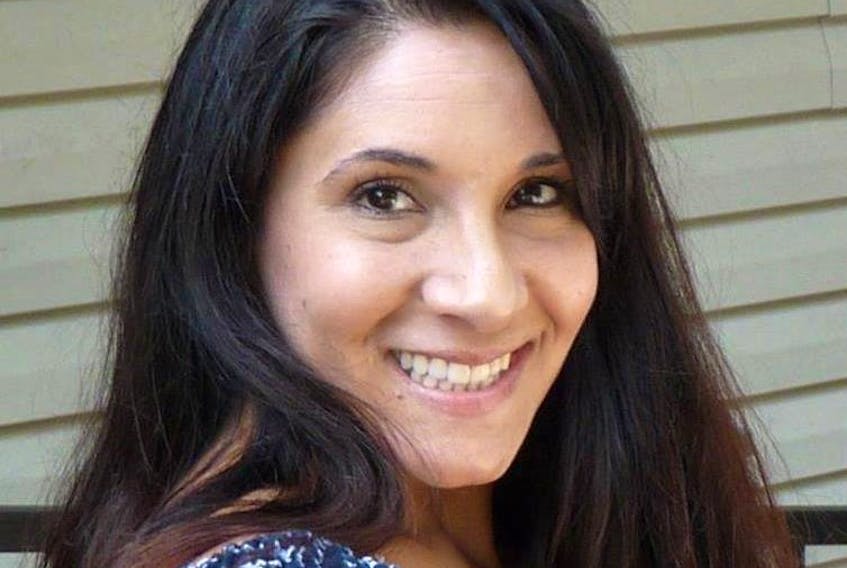ST. JOHN'S, N.L. — With a second wave of COVID-19 causing anxiety and new restrictions across Europe, Heather Udell’s town of Slough in the United Kingdin remains among the areas in the lowest tier of restrictions.
Still, the Mount Pearl native and her family are cautious, making use of a phone app that tells them what the risks are in public facilities.
They didn’t travel this summer.
“We didn't do anything, pretty much just stayed around the house, gardened,” Udell said.

After a steady decline in the UK since the first peak in April, confirmed cases of COVID-19 started rising again in July, with the rate of growth increasing sharply from the end of August, the BBC has reported. New lockdowns in European hotspots have also been making headlines around the world.
Udell works in the public sector.
As people return to a socially-distancing office, there’s a dilemma concerning the hiring of new people and where they will be situated.
“We’re trying to see if people could half-work at home for a few days,” she said.
While British residents deal with the second wave, there’s financial uncertainty.
“The big thing now is businesses are being affected. A lot of people are losing jobs, losing their businesses. We are going to see (more) people filing for benefits and losing money,” Udell said.
She is also noticing some skepticism among British residents, some of whom are rebelling against the latest restrictions after several months of the coronavirus upending their lives.
“It feels like the second wave is coming, probably going to be worse. A lot of people don’t believe it is real. … Some people follow the rules and some people say, ‘Aw, that is not going to happen to me,’” Udell said.
“And then young ones (who didn’t) think they had to deal with it, but they are the ones that are carrying it … they are realizing now, the young people, they do need to take more precautions, washing their hands, distance especially for their families.”
“It feels like the second wave is coming, probably going to be worse. A lot of people don’t believe it is real. … Some people follow the rules and some people say, ‘Aw, that is not going to happen to me.'" — Newfoundlander Heather Udell, who lives in Slough, U.K.
Her daughter went back to school the second week of September, but the students were sent home because someone in her class tested positive.
Udell has had no thoughts at all of trying to travel even around Europe, or visit home, until the coronavirus threat has passed.
While Great Britain, like Newfoundland, is an island, the huge population makes the spread of the coronavirus so much harder to manage, Udell said.
“My mother was saying, ‘When are you going to come and visit?’ (I said), ‘’Mom, I really don’t know. … As many cases as there are over here, I don’t feel comfortable (travelling),” she said, also acknowledging the steps of self-isolating and COVID-19 testing required of people who arrive in Newfoundland from outside the Atlantic bubble.
Being cautious
In Atlanta, Ga., Maya Keiser and her family spent a low-key summer.
All four kids were home.
“Really, my summer was like cooking non-stop,” she said. “Cleaning up from cooking, more cooking and more cooking. I wouldn’t say it was too exciting.”
The family time, and someone always around for meals, was a lovely benefit, Keiser added.
She and her husband did get to take an outdoorsy getaway to a favourite destination in the mountains of North Carolina, but did not stay in a hotel.
Keiser, a public school choral teacher who grew up in St. John’s, was teaching from home until two weeks ago, when staff returned to going into the building every day, but still taught virtually.
”I feel very fortunate my boss, my district superintendent, takes science and precautionary measures very seriously." — Maya Keiser
A week from Monday, the students will come back to her school, and Fridays remaining a virtual day for all.
The school has designated masks a part of the dress code, and parents understand that if they want their kids in school, they have to comply, Keiser said. Sanitizing and temperature-taking have also been made priorities.
”I feel very fortunate my boss, my district superintendent, takes science and precautionary measures very seriously,” Keiser said, acknowledging the anti-mask, anti-science sentiment that has characterized many Americans’ attitude toward the crisis.
Although cases have been declining in Atlanta, there is some concern the numbers aren’t truly reflective, since minority populations have been hard hit across the U.S.
“I work in an area where many of my students have parents who are undocumented, don’t speak English or some combination (of that situation)," Keiser said.
“A lot of those families, many people are living in small spaces, don’t have health insurance and are scared to go to the doctor.”
A close friend of Keiser’s grew seriously ill with COVID-19 and had no pre-existing health conditions. He was hospitalized, placed on oxygen and took three months to recover.
“Seeing him and knowing him really, really made it real. … He is the first person I knew who had a bad case of it,” she said.
Kaiser said people are getting flu shots in record numbers, and there is mobile flu immunization at her school.
Outside of work, she doesn't go out much and always wears masks to grocery stores.
Update Covid19🚩
— Stats & Health (@CoronavirusSafe) October 19, 2020
18/10/20 9:55pm GMT -5
🌍 World
Accumulated Cases
4️⃣0️⃣'2️⃣7️⃣8️⃣,2️⃣0️⃣7️⃣🤒
Accumulated Deaths
1️⃣'1️⃣1️⃣8️⃣,3️⃣2️⃣1️⃣😵
Active cases:
9️⃣'0️⃣4️⃣7️⃣,6️⃣8️⃣2️⃣ 🔼
Countries with more active cases:
1🇺🇸2'705,385
2🇮🇳773,701
3🇨🇵758,861
4🇧🇷431,409
5🇷🇺304,571
6🇧🇪190,683
6🇦🇷159,448 pic.twitter.com/V9q6xYvJAt
The weather is warm in Georgia year-round, there’s lots of opportunities for outdoor activities.
“I have no problem with takeout, but I don’t feel comfortable sitting indoors and eating,” Keiser said. “I am not sitting in movie theatres, going to church, concerts. … I don’t feel it’s necessary.
She also isn’t comfortable getting on a plane, but still hopes that come early next year, the COVID-19 situation will be a thing of the past and she can visit home.
“It’s interesting because in many ways Newfoundland is erring on the side of extreme caution. Down here in the U.S., it’s the other end — extreme lack of caution,” Keiser said.
“There are hundreds of cases in metro Atlanta every day and my kids went back to school (Wednesday),” she said.
“You guys are very, very cautious. … You guys are able to have a life now. We’re still not there yet.”
Keiser is looking ahead to the Nov. 3 U.S. presidential election, and hopes for a change in presidential leadership, and was appalled at President Donald Trump’s behaviour after recovering from COVID-19 — putting on a superman act.
“He’s not taking it seriously,” she said.
“My big worry right now is the election — if we can defeat Trump we will begin an upward trajectory to get out of this mess. Another administration will take the science seriously, and will not lie about whether a vaccine will come out or not.”









